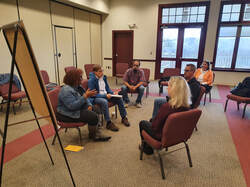 Wonderful to have Keith Archuletta back training DPC with us. Coaching an early phase of module 2 Mediative Communication 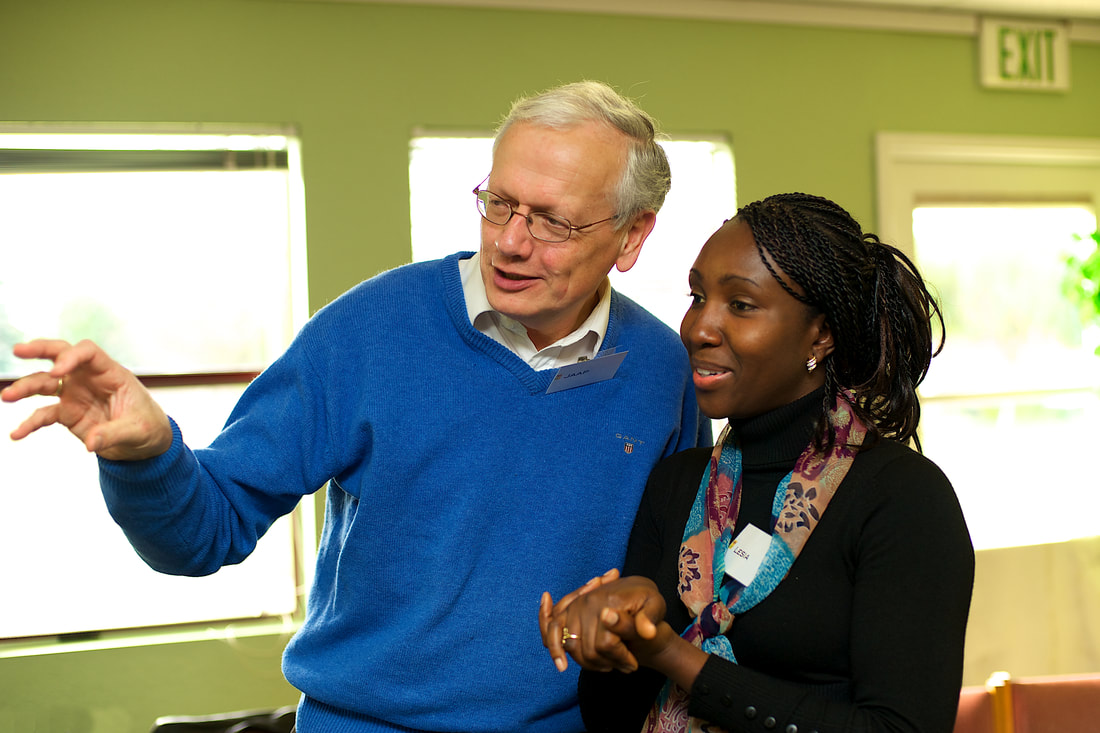 Click herDrawn from a report on DPC to the October 2022 Oikosnet Annual Conference in Malaga Spain It is impossible for me to begin this report without sharing the impact, the huge loss and sadness that the passing of Jaap van der Sar has been for all of us connected with the Dialogue for Peaceful Change [DPC]. Although I was involved in directly shaping the content and conceptual evolution of the DPC methodology, none of this would have happened without the initial inspiration and ongoing support from Jaap and Oikosnet over the last 28 years. Jaap battled with cancer over a number of years. His final battle was with Pancreatic Cancer from which he knew there was little possibility of escape. Jaap lost this battle in March this year. On a personal level I continue to feel his loss most days. He was an amazing colleague, courageous ground breaker, support and above all wonderful friend. Even when we were not working directly on something together, we would speak together most weeks reflecting on our lives, friends and family and the challenges we could see facing the world around us. I carry his voice and wisdom with me every day. However, for those of us who knew Jaap personally, you also know that he had little time for too much sentimentality! I had the honour to visit and talk with him in those last months. He was clear that he wanted us to push on with the work. And we will! As our last report indicated, prior to Covid our work in DPC was focussed on developing a number of potential training proposals. A significant proportion of these conversations were connected to helping some Churches and parishes build up their own internal capacity to use the DPC methodology. These connections included the Lutheran World Federation, The Dutch Reformed Church, and the Presbyterian Church in Baltimore USA. The stresses and strains that Covid caused has meant that, for now, only the Baltimore programme has currently some momentum. We have completed the initial pilot Training of Facilitators programme for both a Baltimore and Washington DC group on the 25th – 29th of May 2022. The feedback from this programme was very positive and we are planning further work in late October or early November this year. With the current political, social, and cultural tensions they are facing regionally and nationally, they feel that the Church does not have the skills in place to constructively work on these issues. This recognition has also been at the heart of our other work with various Churches over the years. The building recognition of this skills gap within the Churches may well be something that we can discuss collectively together on in the Annual Oikosnet Conference in October. Some DPC Evolution and Some Challenges. In recent years the main programmatic development that we have been seeking to evolve with DPC has been to prioritise where possible the building of “DPC Hub Centre’s”. While Jaap and I have been often involved in support and delivering many of the various trainings that have taken place over these years, it was always our expectation and intent that we would build up a cohort of skilled and experienced trainers and DPC coaches. To some degree, at least, we have achieved that goal as there now being 16 Accredited Trainers worldwide. However, what we did not fully recognise for some time, was that, disappointedly, having a range of Trainers scattered across the world did not often facilitate the further development of DPC programmes at their local levels. Many of our Trainers are either working in a “freelance” position or are already quite occupied within another professional setting. This has meant that beyond “open programmes”, they were seldom able to individually establish the capacity to develop their own DPC regional trainings. In discussion with Jaap, we decided to change our approach somewhat. We drew on the capacity building work we had achieved across the city of Antioch in Northern California. Over a 3 -4-year period we trained over 200 facilitators and built a team of 4 accredited trainers. Then through our partnerships in Antioch, we established a ‘DPC Hub’. Our intention had always been to work at building sufficient local capacity for our local trainers to meet the on-going training needs within their local and regional communities. Our work with Fryshuset [a youth NGO in Sweden] has also followed the same path from the outset of our initial trainings. I am delighted to say that we have now built a team of 5 Accredited trainers within Fryshuset and a network of over 100 facilitators. As some will be aware, Sweden has been experiencing some significant inter-community tensions and occasional violence across the diverse migrant and indigenous Swedish community. My own role now is as a consultant/coach for the trainer network. Moving Forward As we know only too well, the challenges that we are facing in the world are intensifying. Alongside the expanding range of social. political and economic problems, the ever-emerging ecological crisis can and will only deepen these tensions. At the heart of the DPC methodology is a recognition that when, we humans, experience an increasing a sense of scarcity or threat of survival then the potential for rivalry, scapegoating and violence will inevitably build. How we each deal with and face into such an unfolding situation inevitably becomes a test of our experience, skills, values, and principles. History would indicate that relying on older cultural certainties will, unfortunately, seldom be likely to serve us well. Jaap and I discussed the dangers of this existential reality on many occasions. To be clear, we have never viewed the DPC methodology as some sort of panacea for such a growing crisis. We do continue to believe that it does nonetheless offers a really useful “toolkit” with which to build up our own personal and collective organisational skills to constructively meet the complexities of our social and ecological world within these emerging and stressful times. Colin Craig 09/08/2022 e to edit. By Colin Craig, DPC Coach in Ballycastle, Northern Ireland Well, what a year 2020 has been. It just never ever seemed to let up. A year ago, Jaap and I were all set to head out to Australia to run a DPC programme out there. As the time to travel came closer, the fires were increasingly out of control and threatening the very area we were to travel into. Should we travel or not? Would the programme even be able to run? It seemed like any answer we came to, changed from moment to moment. In the end and to cut that long story short, the programme was postponed for a week and the venue shifted to Canberra. So, we did travel out and what an incredible experience it was working with the Campfire Co-operative and their networks. From its outset DPC had carried an explicit concern about how it could support the ever-growing challenge of climate change. Well, now we were in the direct reality of its impact and to witness just some if the devastation to lives, wildlife and nature was profound. The counterbalance to this was the joy we had in working with so many committed and courageous people out there. We left with a hope that Campfire could become a new DPC Hub out there over the coming years. Flying back, rumours of something called a Coronavirus were beginning to circulate. Boris Johnson had also signed off a transition agreement for the Brexit. Something I am profoundly disappointed by. So that was the start. Unfortunately, 2020 (and now even the start of 2021) just never lightened off since. In early February, Jim Hyde (the former Chief of Police from Antioch, California) and I had an opportunity to further present the work we are undertaking with Fryshuset (our DPC Hub Partner in Sweden). Together Fryshuset and I made lots of plans and developed more ideas on how we could continue expanding our DPC trainings. I was delighted and optimistic for 2020. Jim and I headed for home for a debrief in Northern Ireland. So much for optimism! The reality of the impact and threat of COVID-19 soon became clearer. By March everywhere was suddenly going into various states of lockdown. All of our proposed DPC programmes cancelled one by one. On a personal note, alongside all this crazy stuff there was also an unexpected joy. Just before the first major proposed lockdown was to commence, our eldest son Ben and his partner Anya with our newly arrived grandson Rowan came to join us in our own Kenbane/Ballycastle bubble. What we thought would be just a few weeks turned into some two and a half months. We saw Rowan grow from baby to toddler. It was such a wondrous time. In our little “bubble” we had the daily joy of seeing a young life engage with the world around him with total disregard for all the surrounding madness of our fractured world and the constant update of the endless news channels. Next came the discovery of something called Zoom. Those who know me, know how brilliant I am with all the new technological developments in our world… Yet the advent of our enforced use of Zoom also created some new insights and interesting challenges regarding the potential evolution of our DPC work. One question arose again and again: “Could we creatively and constructively develop some of our DPC modules into an online version that could still offer value to those who could no longer get to our normal training programmes?” Under the guidance of ‘the younger generation’, the news is that I have been working hard to do just that. To help push this on, I have been working at distance with Fryshuset and we hope to begin piloting most of Module 1 (Understanding Conflict and Change) in the early new year if possible. So, to the DPC world, I am about to become more familiar with the joys of Zoom etc. than I ever expected or in truth ever wished to become. Perhaps there is still the hope that you can, in fact, ‘teach this old dog some new tricks’. Since I started writing this reflection in mid-December we have managed a lot of useful work on building up our online version. We are now close to being able to ‘pilot’ it sometime in the spring period. If it can trundle down the runway and manage to fly then I do think it can and will serve a real purpose. I do remain of the view that it will and should not try to replicate the intensity, intimacy and depth of collective learning that each of us has experienced within our usual DPC Facilitator training programmes. As ever the only way to find out will be to try it….and we will! Watch this space! Postscript: It is now mid-January 2021. I should have had this completed and sent off for the Newsletter two weeks ago. I am not a pessimist by nature or inclination. However, I do try to be something of a realist and to try to speak out when needed. I don’t know when, where and how I or you will be able to draw on our DPC tools and networks for support over this coming year, but in these first thirteen days of 2021, the tensions and challenges the world is facing into are growing. The risks for violence and increasing fracturing are growing. For many of us, our work will necessarily call us into trying to mitigate and intervene on these many points of crises. When I recently spoke to Jim Hyde, he was clear in his concern that the deep fractures that are ever more manifest in the USA will require years of healing before reconciliation will emerge. That is just one aspect of those fractures we face into. You are needed in this world. Your gifts and abilities continue to be a real source of hope and optimism that we can learn from to transcend these divisions and build a more interdependent and equitable world. If I can support you in some way, I will do my best to do just that. In such times, we will need each other, all the more, in order to keep going. View from our COVID bubble in Kenbane/Ballycastle. Photo by Rachel Craig.
By Ishbel Monro, DPC Coach in Nova Scotia, Canada On the east coast of Canada, violence erupted in Nova Scotia, when the Mi’kmaq, the Indigenous people of this land, began what is called a moderate livelihood fishery. Twenty years ago, there was a landmark court case that upheld the Treaty rights of Mi’kmaq to fish and sell their catch. The government’s response was to buy lobster licenses held by non-natives and give them to Indigenous communities. The Mi’kmaq became commercial fishers fishing the same seasons as non-Natives. The court ruling also stated that the Mi’kmaq had the right to fish for a moderate livelihood. For twenty years, they had asked the government to define this and set up a system. This fall, Indigenous communities set up their own fisheries plan. They gave out tags for lobster traps and people went out in small boats, fishing up to 50 traps per boat, compared to 300 on a commercial vessel. This triggered protests from non-native fishermen who did not want anyone fishing outside of lobster fishing “season.” It was ugly, with so much racism rearing its head. Over 200 non-natives surrounded the handful of Indigenous people on the wharf. They were attacked on the water, boats damaged. The painful part was that police just stood by and watched it happen. They did not try to stop the violence. At one point a lone Indigenous man inside a lobster pound at night was surrounded by an angry mob. The police told him the mob would leave if he came out and gave them his lobsters! His van was set on fire in front of police, who did nothing. This past weekend, in another part of Nova Scotia, non-natives hauled up Indigenous traps. When the owner went out in a small aluminum boat to see what was going on, they fired on him with a rifle three times. He is a father with 3 children. This time the police did make arrests. As a DPC coach, I agonized over what could be done to reduce the violence. Twenty years ago, when the original court decision came down, I and others were actively involved on the front lines to prevent the violence we have seen in the last few months. We were able to bring Native and non-natives together for prolonged talking circles. It was not easy, but we created an alliance by keeping the government people out of the room. We brought it to a human-to-human level by asking people to speak from their hearts and listen with their hearts. We asked them to think of their grandparents before they spoke. I reached out to an Indigenous woman who I worked with twenty years before. Her feeling was the level of violence was too intense to step into and we needed to wait for a cooling off period. That is hard, to sit back when people were being assaulted and their lives threatened. Steve and I talked with a Church person who wanted to set up education sessions in non-native fishing communities. We were able to bring the DPC perspective to help guide what that may look like. That people needed to be heard. They needed to express their feeling and work to get at the underlying fears. I held one on one conversations with non-natives from the area who were supporting the non-native fishermen’s position if not the violence. I also worked with others to set up a National Webinar on Indigenous rights which drew a large audience. It featured three Mi’kmaq women. Questions that arose for me included: Even though I come from a non-native fishing family and I do understand some of the fears and concerns, could I remain neutral hearing racist comments and actions? How do you or can you practice DPC with an angry large group in an outdoor setting? How do we find the opening to bring people together, even if it is a small group of people? The challenge is, it is so easy to paint everyone from both sides with one brush. Recently a non-native boat capsized, and 6 people were lost at sea. I have seen social media posts from Indigenous people Praying for those men. Is this an opening? So many questions. So much work to be done to build a just society. Thank-you for listening. Lobster fishing boat of Peggy's Cove, Nova Scotia. Photo by Jim Hoffman.
By James Hyde, DPC Coach in California, USA This year has been challenging on many levels. In America, we had the highly contested presidential election that pulled at the fabric of many societal and institutional values. This past June I was called back into military service to assist the California Army National Guard with deploying over 16,000 soldiers to California’s streets. The mission was to protect the cities from arsonists and looters, while assisting law enforcement with the goal of trying to maintain orderly and peaceful demonstrations. The Past Revisits Us: Today, America lives with the past sins of slavery daily. The betrayal of trust among various segments of America’s diverse population is still present. America’s strength is its diversity, but it struggles moment by moment with such a diverse population. To highlight California’s broad diversity, in many secondary schools, English is a secondary language for students, while as many as 26 other languages may be spoken in their homes. Race discrimination was a powerful dividing political message used by both political parties. Unfortunately, America has an early history of discrimination and slavery as part of its founding story. Sadly, the leaders of two political groups, Antifa and Black Lives Matter, called for and participated in the destruction of hundreds of locally owned small businesses under the banner motto of “reparations”. Many of the protestors were led to believe that such participation would create new opportunities and prosperity. As before, the protestors were left with nothing but the burned ruins of their own communities, broken promises by politicians, and extremely divided communities. As in any conflict, there are collateral losses among the innocent and vulnerable. As we know from many past examples, the practice of disenfranchisement by one group upon another, only maintains and grows the conflict. I am reminded of my DPC training where I learned to ask myself, “who gains and is rewarded by the conflict”. The in-custody death of a Minneapolis citizen named George Floyd sparked the historical burning embers of the past. The contributing factors of his death will be debated in court and the media for the next several years. But I know this, that after 31 years of law enforcement experience the fact remains that the senior officer on-scene had the absolute responsibility to care for the safety and health of Mr. Floyd once he took him into custody. No excuses or exemptions apply in this terrible event. We are once again reminded that for human beings, trust betrayed in the past is difficult to accept in the future. And this is where America stands today on many levels. The New World: The COVID-19 virus and the politics of the virus have impacted our global populations. I contracted the virus in December of 2019 while teaching PTSD prevention to paramedics in Seattle, WA. Within two days, I had full blown pneumonia. Fortunately, I responded well to medications and healed at home, while many did not. The virus is real, but some of the political messaging is not. Many political policies have not adapted to the new scientific findings and the new medical treatment protocols of the COVID-19 virus. Thus, new conflicts have arisen across the country between the small business community (owners and employees) and the political leaders because of the ongoing emergency closure orders. While small businesses are bankrupted, employees unemployed, and communities live under ongoing “stay at home” orders, many politicians have been captured on camera violating their own directives. This of course erodes the perishable commodity of public trust. The global economic impact of the COVID-19 virus has led many nations into a new type of recession. As my good friend Kevin, a former CEO and CFO of several Canadian corporations told me several months ago, “we are now faced with the real possibility of slipping into a world depression”. History tells us that when nations face major economic challenges, they implode from within or attack other perceived enemies as a means to politically survive. Hope: So where do we go from here? The DPC methodology is a proven model of opening the dialogue between two or more warring factions with the goal of brokering a peaceful resolution. In the first month of 2021, the transfer of political power will occur with the inauguration of a new American president. It is our hope as a country that we can begin the healing process. Diversity, politics, Covid-19, and economic challenges will still be the main issues of the coming year. DPC can lead us to a higher level of trust and equity around the globe. As I wait for a shuttle bus at a Dallas TX Airport to visit my daughter and 4-year-old grandson, I reflect on this past year’s challenges and the coming year’s possibilities. At the end of the day, we must all find a way forward to build a “New World” for our families, communities, and globe. With the knowledge of the DPC community and methodology, I am encouraged and committed. Storming of the Capitol, January 2021. Photo by tasnimnews.com
By Sarah Dolah and Linda Skogsby, DPC Trainers for Fryshuset, Sweden Fryshuset is Sweden's biggest youth organisation, focusing particularly on working with youth at risk of finding themselves in destructive environments. We believe that young people can change the world by following their passions. Young Peacebuilders is a project that trains young leaders in peacebuilding and mediation, so that youth can inspire youth to build safe and peaceful communities around them. Our collaboration with DPC and Different Tracks has been central to the project and we are now proud to say that we are moving towards becoming a DPC Hub, as the method has been incorporated in our organisation and sought after by external actors in Sweden. Since 2018 we have trained 85 young leaders in DPC. This fall, Linda Skogsby and Sarah Dolah became accredited trainers in DPC, which marks a big cornerstone for us. Here are some of Linda’s and Sarah’s reflections on the past couple of months working with DPC in Sweden: Linda: Working with DPC in this project has been incredibly instructive and empowering. My journey with DPC has been quite intense and I have learned so much and grown as a person and facilitator together with the methods. It is a lot to take in and to grasp the flow of the methodology, that has been a challenge. I believe so much in DPC and therefore I want to know and understand everything and more around it, but hey, it takes time! The experience to stand in front of the room has had its ups and downs, but together with an amazing team and coaches I’m finally an accredited trainer and looking forward to the next chapter of DPC in Sweden. Sarah: I sometimes have to stop and take a moment to think about how we got here. Five years ago, I became a DPC Facilitator attending a training in Corrymeela, and was first introduced to the methodology. I thought, I want to work with this! And now here we are, building a hub in Sweden, and I’m really so happy and proud of how far we’ve got with this. I feel like I’ve grown so much with this work, and I’ve stepped into the role of a trainer feeling like I’m eager for more. I would like to become a coach! The project will continue until September 2021, and we are hopeful to train more trainers, and to be able to give more trainings outside of the organisation, as interest is growing for learning more about mediation and conflict resolution in Sweden. The need is certainly there. Reflecting on a training we did in September, in Nyköping, together with DPC Coach Courtnae Dunn: Linda: This was the first training of the year, and it had almost been a year without any trainings. I think it went really well. We had a group of coworkers and young people from all over Sweden, and they all had a clear purpose of why they were there. With Courtnae as a coach I learned a lot during that week. I got to throw myself out there again with her and Sarah's support and feedback. All the participants are working in the field and in various different environments. I felt that we managed to get these different types of field workers together and they all saw how this methodology can be used in their daily work, but also how they can learn from each others' work. Sarah: What an amazing coach Courtnae is! In working with this training Linda and I soaked up all the feedback we got, and took every moment to learn from Courtnae. The fact that she is in Stockholm and can be a part of this work is a blessing. The group was great, we had a mix of ages, backgrounds and fields of work, though everyone in some way worked with youth. This really set Linda and me up for the upcoming training, where we were going to hold the room by ourselves. Reflecting on the first training we did as a team in October: Linda: This was the first training I and Sarah Dolah held by ourselves, without a coach in the room. And wow, what an experience. We had a younger group, from the age of 15, with were 8 participants. We had a few worries before entering the training, but what an amazing group to work with. They were really engaged and grasped the methodology without a problem. We had really interesting reflections and they could relate to it in a different way than our co-workers in the previous training. Sarah: This was a big moment – Linda and I training by ourselves and our first time selling the training to an external actor. And it went incredibly well! As Linda said, the group was wonderful, and we can really attest to that 15-18 year-olds grasp the ideas in DPC very well. They are living in it, right now. We had guidance from Colin and from Jim Hyde, DPC Coach from the USA, who had experience with younger groups from before. And what I really took away from Jim’s coaching was: "Teach if you need to”. If the group is already there, reflecting on the right things, and bringing out the knowledge by themselves, confirm their hard work and the learning they’re bringing to the rest of the room. This happened a lot with this group and we learned as much from them as they did from us. We’re really looking forward to more trainings, but are held up a bit by Corona at the moment. So, we are focusing on digitalising some of the modules and preparing for how to deliver training in that way, in collaboration with Colin. But also hoping that we can get out there physically next year – as this is what really gives us energy: meeting young people and supporting them in their work to create a more peaceful Sweden. Fryshuset DPC trainings in September 2020 (left) and 2019 (right).
By Ireneusz Lukas, DPC facilitator and Regional Secretary for Europe in the Lutheran World Federation When I first talked to Jaap van der Sar three years ago, I didn't think that this conversation would be the beginning of one of my most important experiences and discoveries. I called for a consultation on a conflict, which, because of my role, I was to deal with in some way. I had many good intentions, not little life and professional experience, and yet I felt that the situation I was dealing with was beyond my capabilities. The expectations from various sides were enormous. Each side of the conflict was counting on my support for its position, both sides were hoping for a quick solution. My organization and numerous observers wanted the dispute to be resolved as quickly as possible, and I felt that this was to be a test of my competence. During this first conversation with Jaap van der Sar, I was relieved not only that I was understood, that my feelings about the complexity of the problem had been confirmed, but also that my concerns about the risks of unrealistic expectations had been recognised. In just an hour, I had gained a much clearer and more realistic view of the situation. I also understood better than ever before the principles of the scapegoating mechanism into which I could have been dragged without this conversation. In addition to these insights, which significantly affected my emotional stability and allowed for a more objective view of the situation, I was impressed by the calm, empathetic and factual style in which this conversation was conducted. This conversation style was very close to my heart. I had the desire to learn a style of dialogue that helped me to make a “peaceful change” in my attitude, in my perception of the situation. Almost immediately after our conversation, I was determined to ask for assistance. Here there was also an immediate change in my expectations – I did not expect to resolve the conflict right away, but first to help me assess the possibility of resolving it and the willingness of both sides to cooperate. This is how my practical adventure with Dialogue for Peaceful Change (DPC) began. Together with Jaap van der Sar and Colin Craig we went to meet with the parties to the conflict. Personally, I felt safe with two experienced mediators, and I knew that their non-alignment was a guarantee for the most objective possible assessment of the long-term conflict and the potential for change. It was an extraordinary opportunity to experience the DPC methodology from the inside - as a participant of the process and observer at the same time. Our discussions about what happened during the talks with the parties to the conflict, joint reflection on the changes taking place and planning the next stages of the mediation process, allowed me to be fully involved and, at the same time, to maintain a healthy distance, which is so necessary for effective mediation. The results of our talks, although slightly different from what many external observers expected (in a long-standing conflict, change does not usually happen overnight), were deeply moving for me. I was touched by personal stories and shared feelings. Moreover, I was very intrigued by how the proposed next steps and adherence to specific rules allowed the participants to cool down their emotions and slowly broaden their perception of the situation. Very impressed by this practical learning experience and its outcomes, I wanted to learn more about how to conduct dialogue for peaceful change. This became possible in May 2018, when I was accepted to participate in the weekly Global Mediation Training (DPC) in Corrymeela, Ballycastle. Both the unique charm of Corrymeela, and its history in particular, were important to me. The religious background of the conflict in Northern Ireland in the last decades of the 20th century, on the one hand, and the peace initiatives taken in Corrymeela by religiously motivated people on the other, was one of the important sources of development of DPC. As I work mainly in international church contexts, sensitivity to the religious dimension in peacebuilding was important to me. I have repeatedly experienced that the expectations for competence in making peace in religious environments are very high. At the same time, conflicts are an integral part of all human relationships and it is almost a truism to say that churches are no exception. As Rabbi Jonathan Sacks put it: “Religion can be a source of discord but it can also be a form of conflict resolution. We are familiar with the former; the second is far too little tried” (J. Sacks, The Dignity of Difference) The experiences during the training in Corrymeela provided me not only with practical knowledge and skills, but they additionally contributed to DPC, for me, starting to become not only a methodology for peaceful conflict resolution, but actually an attitude to life or even a lifestyle. In a way of simplification, I could say that conflicts have ceased to be something messy that should be avoided, but have become an integral part of life. Peace has ceased to be an idealised idea of a life without differences and conflicts, but has become the art of wise compromises, in the pursuit of a balance between what was and what is and what can be. Peace has become 'the art and practice of living together'. Most DPC training participants are familiar with the expressions ‘meditative communication’ or ‘meditative attitude’ and I would add even a “meditative lifestyle" which refers to similar experiences. In 2019, I had the opportunity to co-run as a facilitator together with Colin Craig and Patricia Cuyatti my first DPC training in Brazil for representatives on Lutheran Churches in Latin America and Caribbean. The joy of accompanying others in discovering new ways of thinking about conflicts in learning to mediate, was not only important and pleasant, but also allowed me to deepen my previous experience. After our training, the DPC methodology and way of thinking, is developing and is now applied practically in many South American countries. It is noteworthy that the theories and models used within DPC allow for their use, application and development in different contexts. The Lutheran World Federation (LWF) attempts to supplement DPC with a reflection based on the analysis of biblical texts. There are also many links between DPC and the LWF's nearly 10 year-long 'Seeking Conviviality Process' focusing on community diakonia practice in the context of a constantly diversifying situation in Europe. In my own search, I discover numerous connections and possibilities of practical applications of DPC theory and practice in conjunction with social constructivism and narrative therapy. These approaches place great emphasis on the multiplicity of possible descriptions and narratives that co-exist alongside each other. The possibilities and the need to create new narratives useful to a dialogue for peaceful change are also highlighted. Such thinking also finds its reflection in contemporary ecumenical and interreligious dialogue. Working for the Lutheran World Federation (a global faith based organization) and being responsible for nurturing relations between many churches in different cultural, political and social contexts, I can no longer imagine myself without the experience and competence gained through DPC. I wish everyone who does similar work to mine that DPC would become an integral part of their education. DPC training organized by the Lutheran World Foundation in Abudja, Nigeria, Nov. 2019
By DPC training participant at Tatagamouche Center, Anke Heiser - winter 2019-2020
I recently participated in a 'Dialogue for Peaceful Change' training in Fredericton, New Brunswick. It was an opportunity that allowed a lot of Righting Relations members, and others, from across Turtle Island to come together on the traditional unceded territory of the Wolastoqiyik and learn together how to analyze and resolve conflicts. We were a group of Mi'kmaq, Ojibwe, Wolastoqiyik, Anishinaabeg, Sto:lo, Wampanoag, racialized and white immigrants and settlers with roots tracing back to China, Columbia, India, Uruguay, East-Africa, Ghana, Barbados, and Germany. I was one of the very few white and few non-Indigenous people in the group, a composition similar to what I have experienced before in the Righting Relations network context. I have been in settings before where I was one of the few white people in the room and I have been wondering about my role and responsibility in this position. When I started to think about writing a reflection about the 'Dialogue for Peaceful Change' training I felt compelled to look at this question more closely. The content of the training and my experience of the week overall have given me new insights and new angles from which to scrutinize my participation and role in this context. I become more quiet in a group in which I am one of only a few white people. I don't want to dominate the space as a member of the dominant white settler culture. I want to be respectful and learn from other perspectives. I am certainly aware that the fear of making a mistake, involuntarily hurting someone and/or provoking a conflict has an influence on the way I participate, too. I am conscious about growing more silent in these settings and I have noticed a similar behaviour in other white people in similar contexts. However I was still surprised when one of my co-participants commented about my firm and animated demeanour in a role play which, to her, didn't reflect my behaviour in the big group. I wondered ‘How does she perceive me in the group?' Stepping back out of respect and with the intention to avoid dominant behaviour can reverse itself into the other extreme: the withdrawal from the collective group process. If I withdraw myself too much from the group process I am in danger of becoming a spectator. I can become the one who doesn't contribute to the conversation, who doesn't participate in the emotional relationship building, who doesn't do the work. By stepping back too far in this space, I risk to become the white person who lets my Indigenous and racialized colleagues do the work. It suspiciously reminds me of the role of the colonizer who only exploits the work of the colonized and doesn't give back. To what extent is this withdrawal - consciously or unconsciously - also a form of preempted white fragility? If I don’t fully engage in the first place, I don’t risk to be called out for my potential mistakes. How do I find a balance between not dominating the space as a white settler and not withdrawing myself from the relationships and the collective process? The following perspectives that were expressed at the training, and which I paraphrase here, had a huge impact on me and point towards possible answers: 'Conflict is inevitable. Peace might be our goal, however even if we reach peace or even only a peaceful moment it will never last because conflict is everywhere. We need to go through conflict to get to peace.’ ‘Conflicts have the potential to be a source of growth and transformational change.’ On a cognitive level I know that conflicts are everywhere: In our relationships with people, within ourselves, and globally. However I haven't embraced conflicts as a ubiquitous reality in my daily life, and on some level have shielded myself from acknowledging conflicts’ ever-presence. I certainly haven't sought out conflict as a strategy to get to peace. Up to now, I have not experienced a lot of occasions where I could witness conflicts as 'being a source of growth and transformational change.’ Instead, I am aware of conflicts that have led to a chilling in friendships, an estrangement within relationships and the division or collapse of activist groups. I have also experienced conflicts in organizations that resulted in suppressed hurt and remaining distrust as they were not resolved in a sustainable way. Thinking of conflicts as a potential source of growth and transformational change is very empowering, and liberating. If I acknowledge the fact that conflicts are ubiquitous, there is no advantage and no excuse anymore to try to avoid conflicts or to be scared of them, for example, by withholding myself from the group processes in groups where I am one of the few white people. The obvious undesirability of either dominance or extreme withdrawal in these groups makes me feel obliged to actively try to find a balance in my participation if I want my commitment to radical social change to be reflected in my actions. The promise of growth and transformational change makes me want to go through conflicts and get better at resolving them, especially now as I have begun to acquire the tools and the confidence to resolve them in a sustainable way. Are we at Righting Relations ready to deal with conflicts that arise from us trying to authentically and courageously juggle the entirety of our intersectional selves? Are we at the point where we can dare to take these risks or is that still a vision that we are working towards? Writing this reflection has sent me on an insightful journey. In the past I have chosen to be more silent in settings where I as a white settler was in the minority. Until now I had not considered that as a consequence of modifying my behaviour in this way I had potentially interfered with opportunities for growth and transformational change within the particular group. I am only beginning to have a notion that I have a responsibility to find a balance between respectfully making space and allowing my own voice to be heard as well. I would like to thank everyone with whom I have spent this very special week of training. Your presence, stories, and wisdom have touched and transformed me. Until we meet again. Miigwetch, Anke |
AuthorReflection articles from various DPC coaches, trainers and facilitators on past trainings and DPC applications. Want to add yours? Please get in touch Archives
November 2022
Categories |
Ready to PRACTICE? |
Have a Question? |
Proudly powered by Weebly
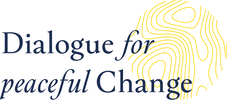
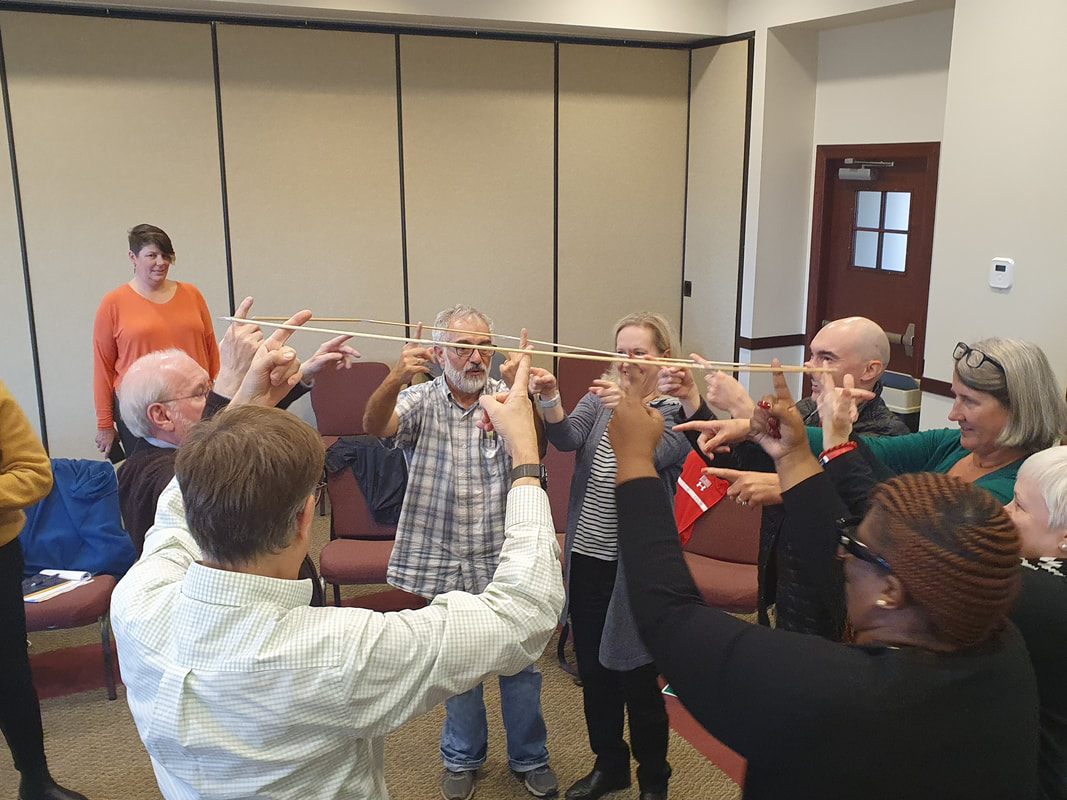
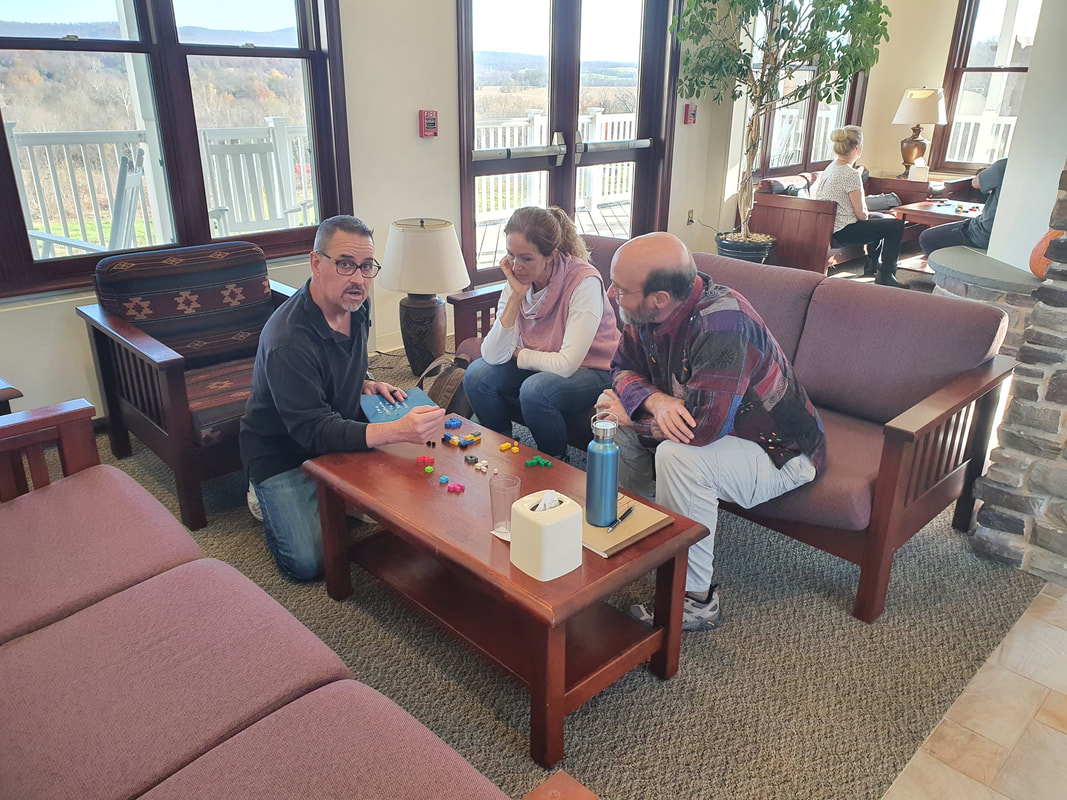
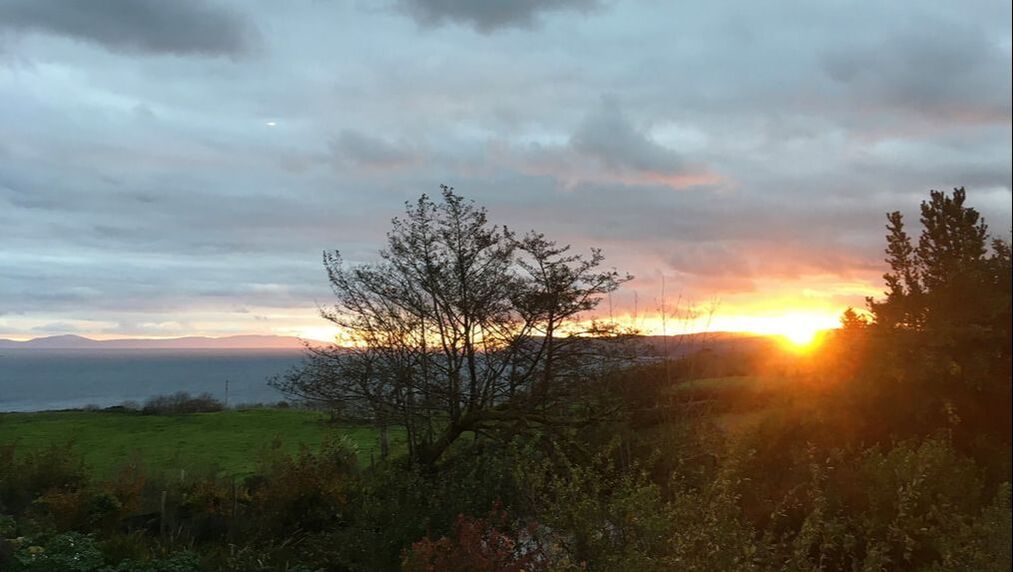
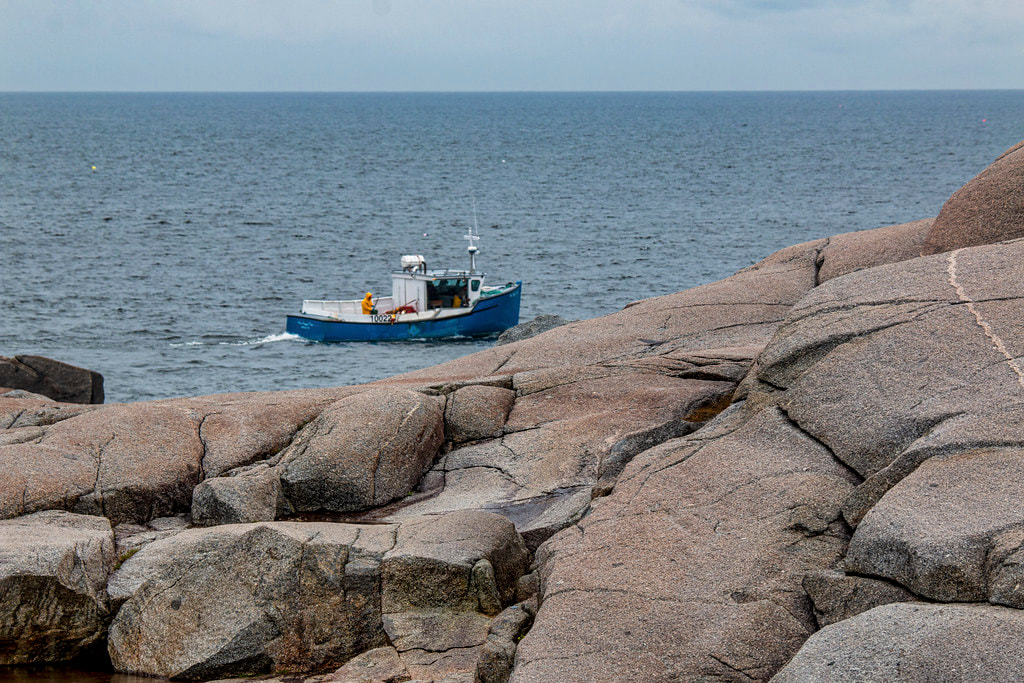
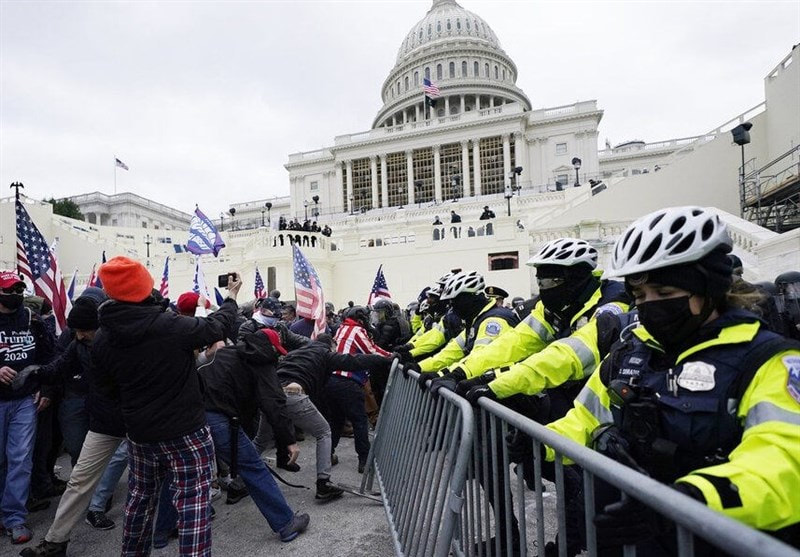
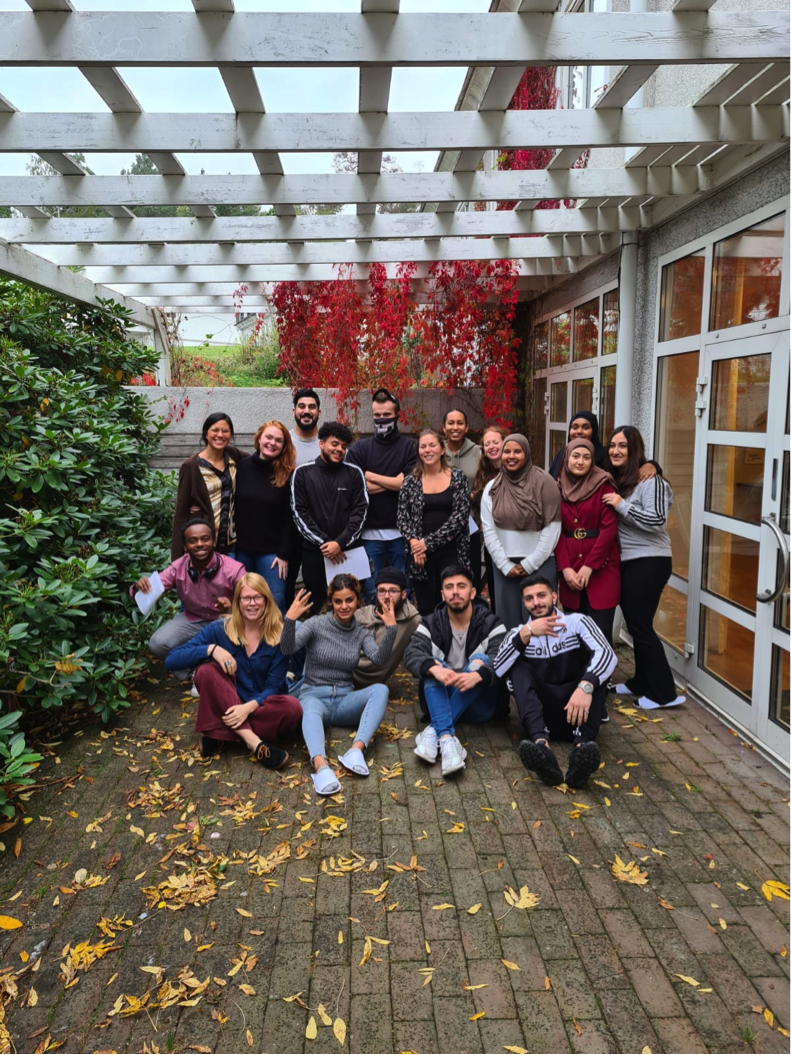
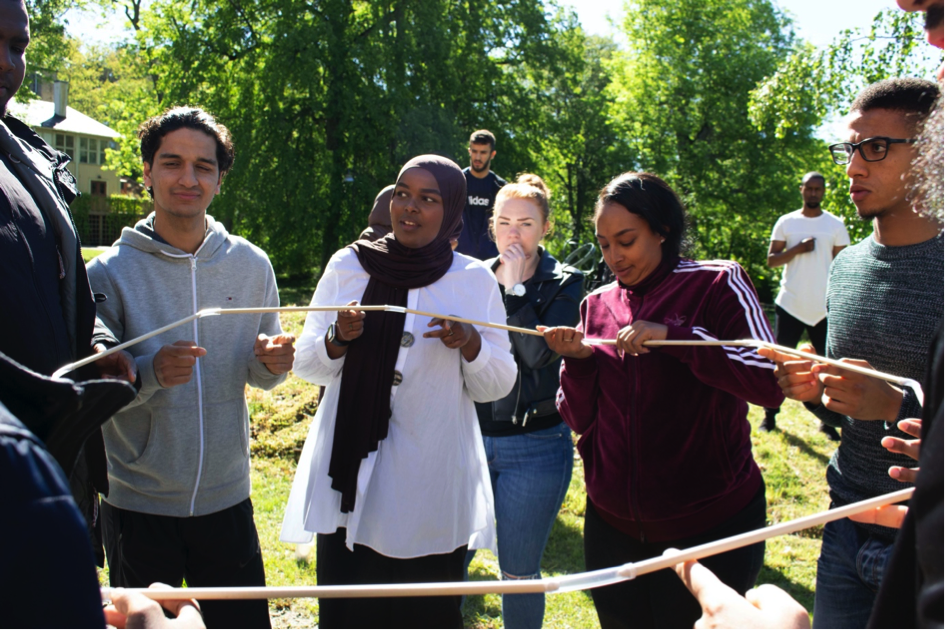
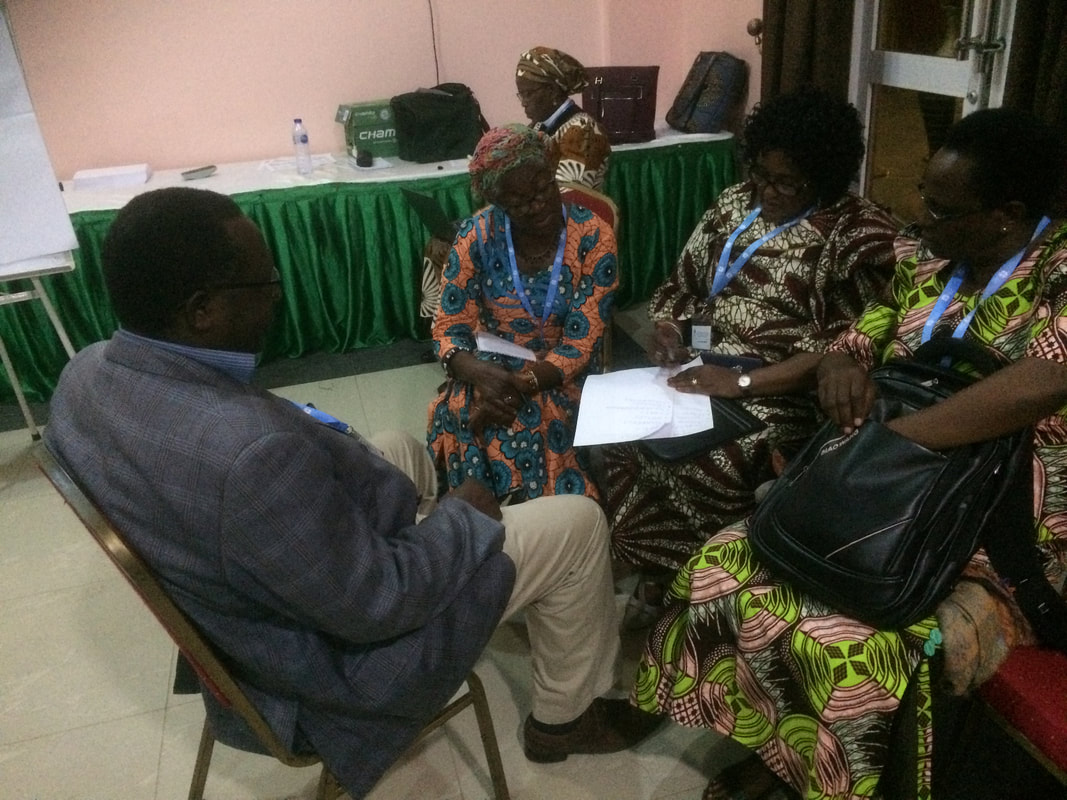
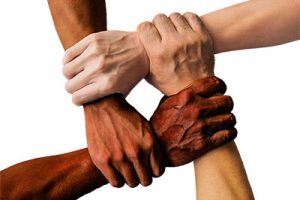
 RSS Feed
RSS Feed